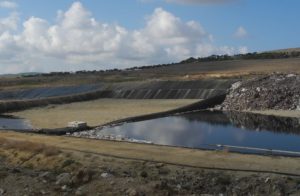The program “controlled landfills for household waste III” which is part of the National Program for Integrated and Sustainable Waste Management (PRONGIDD) aims at waste management through transfer stations, landfills and waste treatment facilities all over the country (new landfills, mechanical-biological pilot treatment plants). Due to lack of information and lack of integrating people’s interest, ANGED is confronted with massive demonstrations of citizens and blockages of construction sites.
Country:
Tunisia
Project Period:
April 2017 – Dec 2023
Services Provided:
Capacity building and qualification of the National Agency for Waste Management (ANGed), assistance in developing an information, communication and participation strategy; support for new projects (under DC III) and ongoing blocked projects; support in developing a best practice manual for dialogue
Name of staff involved:
Hedi Feibel, moderation expert; administrative and financial project management
Non-Skat staff:
- Véronique Marcadon : Project Manager, expert in change management
- Steffen Schuelein : expert in communication, mediation and facilitation
- Patrick Winckel, expert for support, quality control and supervision ; Pool of national experts
Name of Client:
Agence Nationale des Déchets (ANGed), Tunisia, represented by KfW Development Bank
Name of partner organisation:
Force Management FM & Société Tunisienne pour l’Environnement STE
Description of the Project:
Services provided by Skat: Capacity building and support of the communication unit (of ANGed) and of Steering Groups at different levels; development of a comprehensive concept of civil society participation.
Objective: Definition, establishment and implementation of a national dialogue process on the management of household and similar waste (controlled planning and decision-making processes).
Activities: Critical analysis of the status of specific projects, elaboration of detailed work plans, establishment and support of National and Regional Steering Groups, establishment and monitoring of appropriate measures for different phases: design, site identification, public consultation (environmental and social impact study), site implementation and operation.
Results: ANGed staff is able to a) implement the information and communication strategy on waste management, b) to involve citizens in the public hearing process during site selection and c) to continue the dialogue with citizens during implementation and operation of the facilities.




